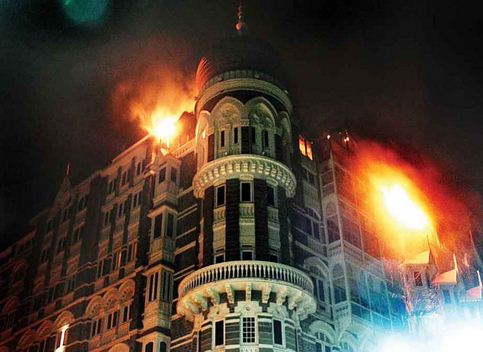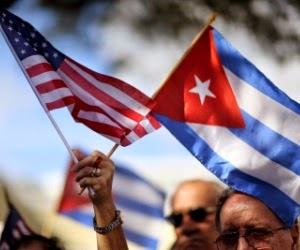After the deadly attacks recorded on November 13 in Paris that shook the world, the first hints that pointed immediately to that municipality, located in the west of side of Brussels, as possible headquarters for plotting out those actions.
However, Molenbeek’s relation to the terrorist events goes back several years, because they date from the previous days to the attacks on September 11, 2001 against New York, a break point, just at the beginning of the 21st century.
On September 9, the political and military leader Ahmad Sah Masud was assassinated in Afghanistan. He rejected the Taliban movement for its fundamentalist interpretation of Islam.
His death was caused by a bomb exploded by a false journalist, who was in fact a suicidal attacker of Tunisian origin, named Abdessatar Dahmane and based in Molenbeek.
Shortly later in March, 2004, several explosions shook the subway in Madrid, causing 191 fatal victims, the worse attacks recorded in the history of Spain. The investigations revealed that the masterminds behind the attacks were three Moroccan citizens that had lived in Molenbeek.
In May, 2014, a French citizen or Algerian citizen carried out an attack against the Jewish museum in Belgium that caused the death of four people. The action was proved to have been plotted out at a small apartment in Molenbeek.
This municipality was where Amedy Coulibaly bought the weapons used in the attack against a Jewish market in Paris, in January, 2015, in which five people died, and also Ayoub El Khazzani lived there. He tried to carry out an attack that year, against a train Thalys that went from Brussels to the French capital.
Regarding the attacks on November 13, in which 130 people died, there are numerous links to the incidents and Molenbeek, as the fact that one of the attackers lived in that place.
The Belgian police is investigating several residents in the municipality, due to the evidence that they contributed to plot out the extremist actions, and at least two of them helped Salah Abdeslam escape, for being a suspect, who is a fugitive now and considered a key figure.
Summing up, the list is long and the incidents could be the events in a suspense feature film, but they are not. They are so actual as the hundreds of people that died as a consequence of those actions.
Faced with the striking phenomenon, the media uses all kinds of epithets to describe Molenbeek: hideout to extremists, den of Jihadism in Europe, or terrorist sanctuary in Belgium.
Belgian Prime Minister Charles Michel accepted that the country has a huge problem with Melenbeek.
There has been certain sluggishness, certain not doing. We are paying the bill for not having done anything in the past, he admitted.
The issue continues to be enigmatic and these days, a Europe that feels itself threatened, seeks to disentangle why all the threats of such a complex plot lead to the same place.
SPACE FOR EASY RADICALIZATION
The municipality of Malenbeek, with around 90,000 inhabitants, has characteristic features, as a conductive place for radicalization works. Those who devote themselves to spread fundamentalist interpretations of Islam and recruit people, especially young people, find favorable conditions there.
Currently, it is considered the second youngest district in Brussels and also the second poorest in the city, while the amount of foreign people there exceeds 27 percent, according to information published by the Belgian media.
Many inhabitants interviewed by media outlets asserted that it is a quiet place, but others admit the existence of conflict and unsafe areas.
Molenbeek is an industrial area, the reason why it attracted a large number of immigrants from the African Maghreb, especially from Morocco, in the ’60s and ’70s.
According to those media outlets, the children and grandchildren of those generations are now youths that do not share their parents and grandparents nationalities, but they do not feel as Belgians either in a society that has not accepted them yet as national citizens and still considers them foreigners.
That lack of sociocultural integration adds to the fact that many of them are unemployed, because the unemployment rate in the locality reaches 45 percent.
Analyst Claude Moniquet told the news network BBC that those problems regarding identity and culture, and social conflicts contribute to the existence of fragile and vulnerable communities.
Charismatic figures emerge in underground circles, and become leaders of the most extreme sectors of the community, he explained.
On the other hand, recruiters usually seek direct contact with boys and sensitize them, with information, to the tragedy that inhabitants, especially children, go through in Middle East countries and convince them that their actions would be in favor of those populations.
According to the Spanish free newspaper 20 Minutos, those young men’s heads are filled with the idea that they are nobody in Belgium, but they can be warriors in Syria.
That way, they enlist boys that travel to the Middle East and if they survive the war, some return prepared to attack in Europe.
Another factor that favors extremist propaganda is that Belgium, a country where several nationalities converge, has an administrative structure characterized by decentralization, something that entails several levels of bureaucracy and difficulties for information flow.
Police stations are only in Brussels and that hinders joint investigation development to reach really useful results to fight radicalization, said officers quoted by the European media.
Besides, there have been many cuts in recent years, of the budget devoted to the work of the intelligence service and as a consequence, establishing surveillance teams to maintain suspect monitoring became difficult.
Such situation has a bearing on another factor, the existence of a well-established black market of weapons.
Police Chief Johan Berckmans told the Spanish newspaper El Pais that “periodically, we find weapons in homes. There is an illegal circuit and yes, guns can be bought and also Kalashnikov, the rifles used in the attacks in Paris.”
The combination of all these phenomena ends up proving the statement that Molenbeek and Belgium in general, are a favorable scene for radicalization and the actions by extremist cells.
In fact, that nation is, in the whole Europe, the territory where more citizens per capita go to the Middle East to join the ranks of the terrorist group Islamic State, with an approximate total of 440, according to the International Center for Studies for Radicalization.
The Belgian prime minister asserted to have a huge problem in Molenbeek and everything seems to indicate that he is not less than right.
“We are going to work restlessly with the local authorities, he promised and added that the federal Government is in the position to provide more means to improve the situation on the spot.”





